May 30, 2025 | 05:17 GMT +7
May 30, 2025 | 05:17 GMT +7
Hotline: 0913.378.918
May 30, 2025 | 05:17 GMT +7
Hotline: 0913.378.918
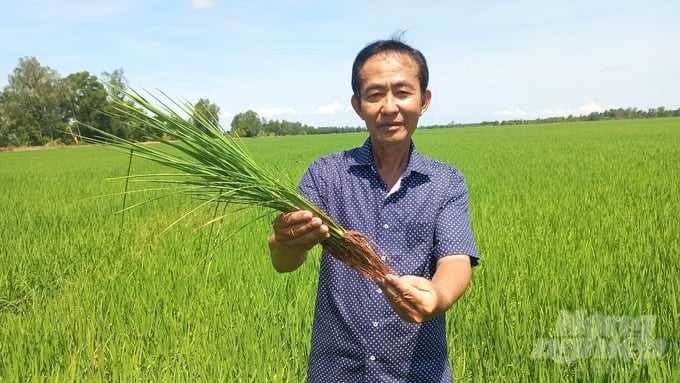
Mr. Nguyen Van Thich, Director of Tan Long Rice Cooperative (Vinh Tuong Commune, Vi Thuy District, Hau Giang Province), stated that when transitioning to organic farming, rice plants grow healthier, are less prone to diseases, and the ecological environment of the fields has notably improved. Photo: KT.
Tan Long Rice Cooperative has been one of the pioneers in pursuing and converting from traditional agriculture to organic farming since the early days of the organic agriculture trend.
At a recent seminar titled "Transition to Organic Agriculture Requires Additional Support," organized by Vietnam Agriculture Newspaper, Mr Nguyen Van Thich expressed that traditional rice cultivation previously provided stable yields due to favourable weather conditions. However, with the current unpredictable climate change, farming activities for local farmers have faced numerous challenges. Moreover, farmers have yet to fully exploit the existing agricultural potential to create sustainable economic value.
In response to these realities, Tan Long Rice Cooperative has accompanied local farmers in implementing organic farming practices in the fields. "Our cooperative has shifted towards organic rice cultivation with the aim of producing safe, high-value products that are environmentally friendly", Mr Thich emphasized.
Mr Thich also emphasized that to achieve high incomes from organic rice production, farmers must collaborate to form large fields, continuously learn, and apply scientific and technological advancements to meet market demands.
Following the shift to organic production, the income of rice growers at Tân Long Rice Cooperative has steadily increased. This outcome is attributed to the farmers' improved awareness and application of advanced techniques in production. Consequently, unnecessary input costs have been reduced while enhancing the quality and value of the products.
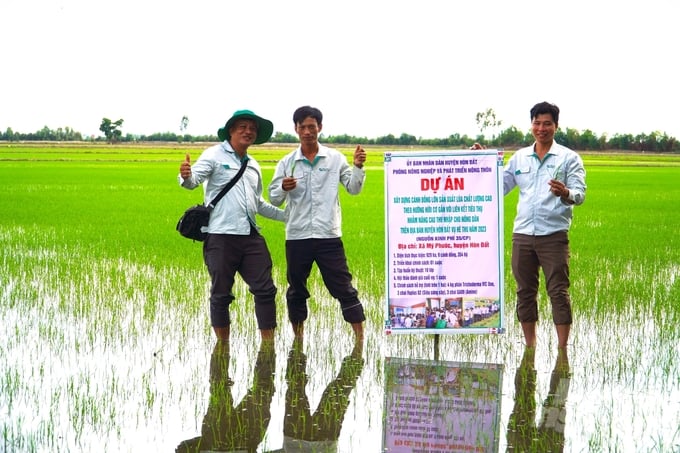
In the initial stages of transitioning to organic rice production, farmers faced significant challenges, however, after time, this cultivation method brought positive and enduring benefits. Photo: KT.
According to Mr Thich, initially transitioning to organic rice cultivation presented many challenges for the members of the Tan Long Rice Cooperative. Farmers were heavily focused on the belief that planting during the optimal season would yield higher profits, and they did not immediately see the benefits of organic farming. Furthermore, in the first year of organic rice production, the cooperative had to sell fresh rice to traders at prices equivalent to non-organic rice due to the lack of an established brand.
However, after establishing the "Clean Rice Vi Thuy" brand of the cooperative and receiving OCOP product recognition, the value of rice grains and the income of rice growers underwent a significant change.
Currently, with advancements in scientific and technical fields, sustainable farming practices like zero-footprint cultivation are expanding daily. This creates favourable conditions for farmers to develop sustainable organic agriculture.
Mr Thich also highlighted that for organic rice production to yield high incomes, farmers must collaborate to form large fields, continuously learn, and apply scientific and technological advancements to meet market demands.
After transitioning to organic production, the income of rice growers at Tan Long Rice Cooperative has steadily increased. This achievement is attributed to farmers' improved awareness and application of advanced techniques in production. Consequently, unnecessary input costs have been reduced while enhancing the quality and value of the products.
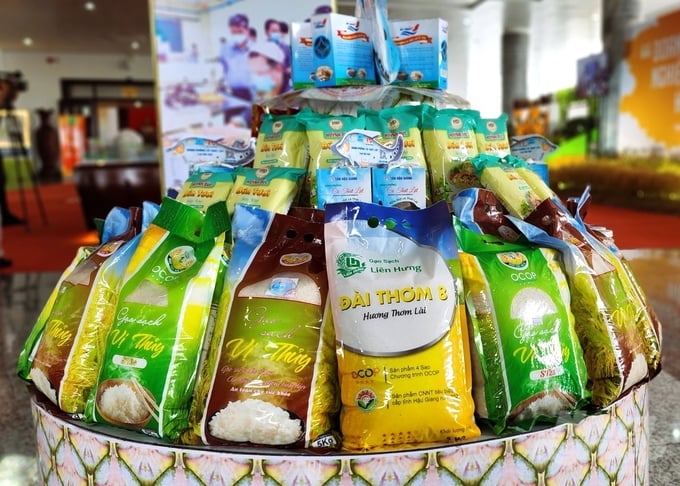
After establishing the "Clean Rice Vi Thuy" brand and receiving OCOP product recognition, the value of rice grains and the income of rice growers have seen a noticeable change. Photo: KT.
Particularly, due to organic production, previously absent water shrimp, unable to survive in fields due to chemical fertilizers and pesticides, have returned. This indicates an improving ecological environment in the rice fields.
With successes in transitioning to organic rice production, the "Clean Rice Vi Thuy" brand is gradually gaining recognition in the market. However, the demand for these products is still not high. To further enhance the product's value, Tan Long Rice Cooperative is collaborating with BSB Nanotech and NetZero Carbon to establish the EcoCycle model. This organic farming approach aims to reduce greenhouse gas emissions. The entire rice growth process is monitored and managed via satellite.
Mr. Thich is optimistic that by openly and transparently showcasing the EcoCycle organic production process, it will significantly contribute to enhancing the value and reputation of Hau Giang province's rice in particular and the image of Vietnam in general on the international market.
Translated by Hoang Duy
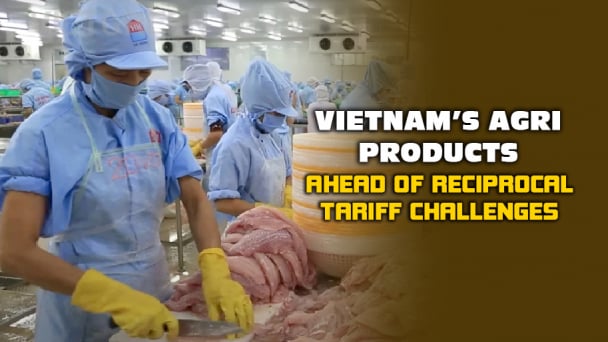
(VAN) Reciprocal tariffs are exerting pressure on U.S. exports, prompting Vietnamese firms to shift their focus to Muslim markets, Thailand, and Brazil.
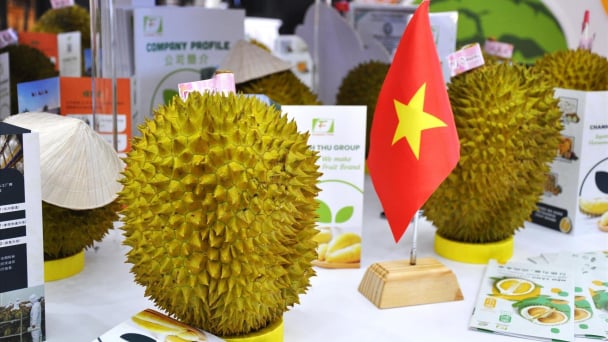
(VAN) A free booth for two years at Xinfadi, Beijing's largest wholesale market, will be allocated to Vietnam's agricultural products.
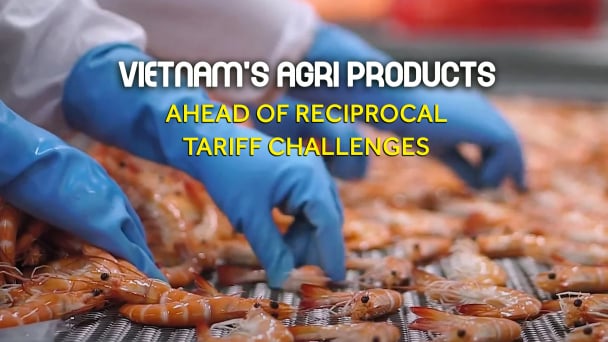
(VAN) Vietnamese shrimp exporters are actively looking for alternative markets and accelerating shipments to the United States in response to the pressure of impending reciprocal tariffs. This is occurring during a temporary tariff suspension.

(VAN) The import-export turnover between Vietnam and Singapore rose amid a trade rebound, with machinery, electrical equipment, and fuels making up the majority of the transaction value.

(VAN) Director General of the General Administration of Customs of China, Ms. Sun Mai Jun, has pledged to implement measures that will ease the import process for Vietnamese agricultural products.

(VAN) Although Vietnam is still increasing its coffee exports, the industry is currently in the process of determining market strategies in response to the U.S. imposition of reciprocal tariffs.

(VAN) With rising demand in Muslim-majority countries, Halal certification is becoming a critical passport for Vietnamese agricultural products seeking sustainable market access and consumer trust in the Middle East and Africa.